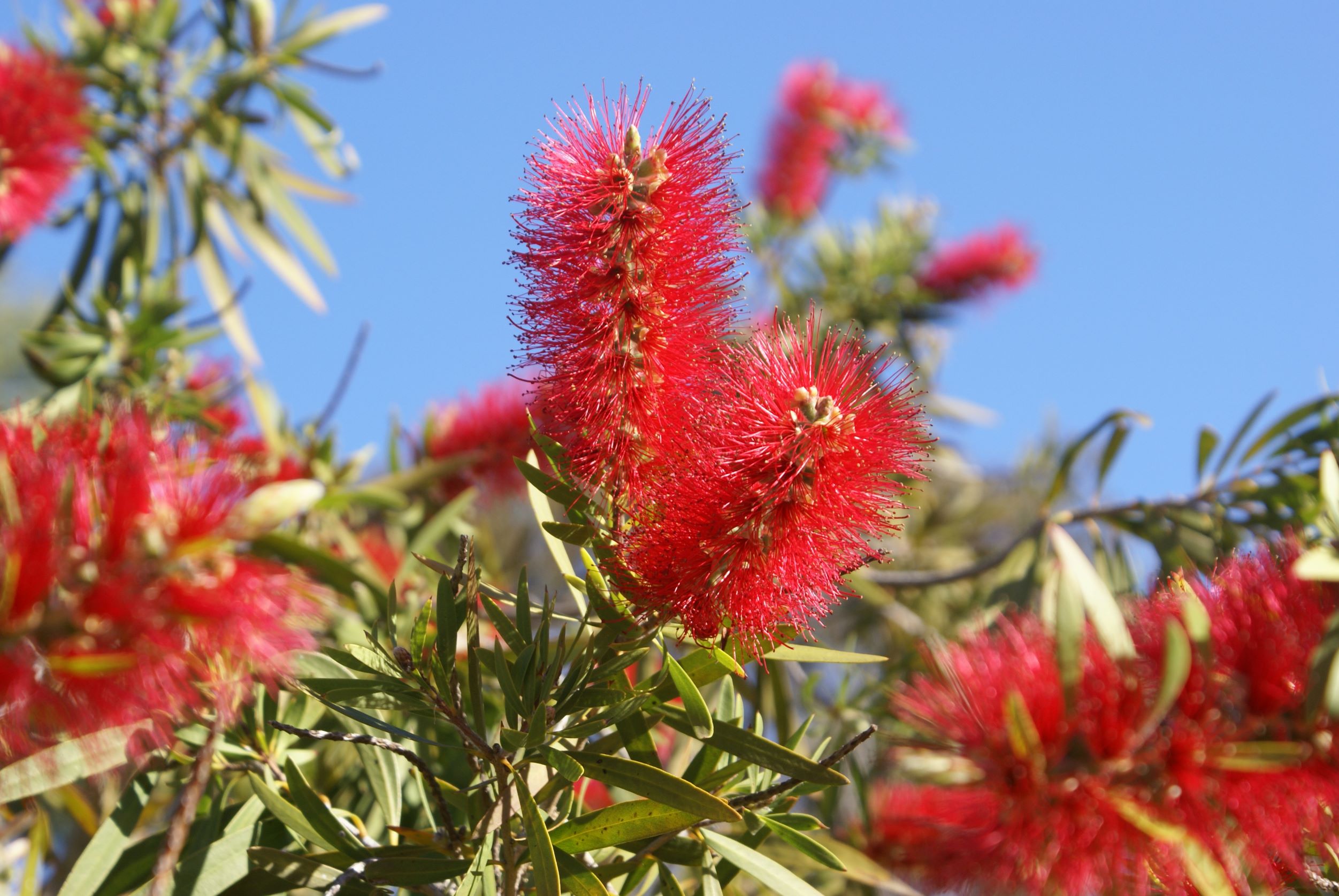Plants you should chose for attracting Native Bees to your garden.
A list of easily found plant varieties in Brisbane for attracting Native Bees to your garden. Native bees are found throughout Brisbane and vital for the environment. Native bees are active throughout the year and what better way to attract them to your garden by planting Native Bee friendly flowing plants.
Native Bee attracting and friendly plants for your Garden.
Crepe Myrtle (Lagerstoemia indica)
Crepe myrtle is a flowering tree that can be heavily pruned and grown as a shrub or around 3 meters height. Crepe Myrtle flowers are ruffled with crepe like texture. In Autumn the green leave turn yellow , orange or red. Crepe Myrtle plants are perfect for Native Bees in Brisbane.
Bottlebrush (Callistemon)
Bottlebrush is a hardy Australian shrub or small tree that features a distinctive flower head. Native Bottlebrush shrubs produce pollen and nectar rich flowers that Native bees in Brisbane would love in your garden.
Citrus plants
Citrus fruit trees are readily available I Brisbane and Native Bees love them. Citrus trees can will produce fruit and the Native bees you have attracted to your garden will pollinate them foryou rewarding you with big healthy crops.
Grevillea (spider flowers)
These Australian native garden plants range in size from small to large trees. Grevillea bloom for several months in Brisbane producing striking pink and yellow flowers that resemble a brush. No matter the size of your garden you will find a suitable Grevillea plant that will attract native bees your garden.
Melaleuca (honey Myrtle)
Melaleuca range in size from small shrubs to small trees. They produce flowers that Native bees in Brisbane will happily come to your garden form there pollen and nectar.
Abelia x grandiflora
Abeila is a compact, low growing shrub that can be grown in Brisbane to attract Native Bees to your garden. It flowers around December providing good nectar and pollen for Native bees in your area when many wildflowers are not flowering.
For more information on Native bees and Stingless Native bees see our identification page or Contact us.
